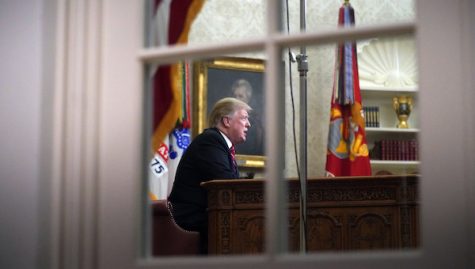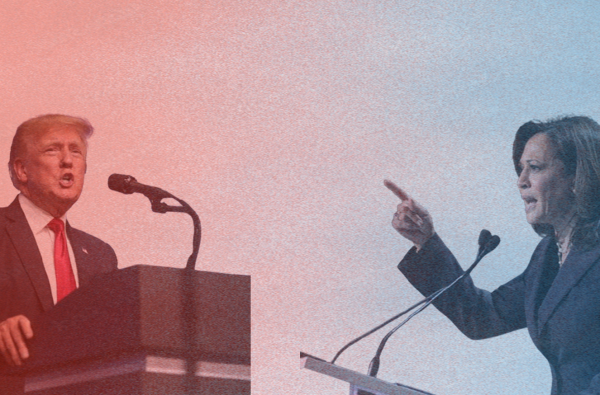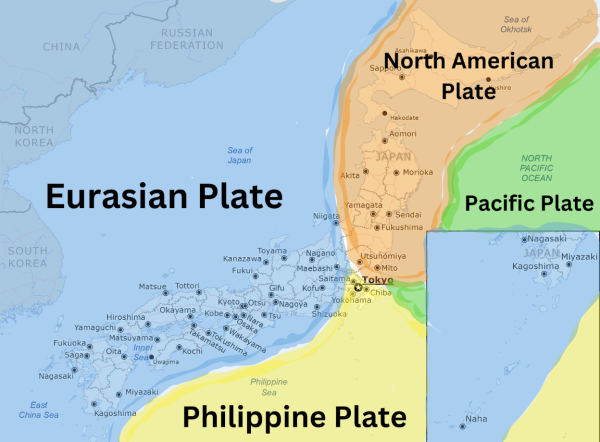What Trump’s Shutdown Means for the Future of American Democracy

President Donald Trump addresses the nation from the Oval Office of the White House in Washington, Tuesday, Jan. 8, 2019. (AP Photo/Carolyn Kaster)
Throughout the government shutdown, Trump has repeatedly bashed Democratic leaders for their inability to compromise on border security. The shutdown, fueled primarily by Trump’s demands for funding for a border wall, has now reached a record-breaking 28 days, the longest in modern American history. Democrats oppose the wall for a number of reasons, but most commonly cite its hefty price tag and ineffectiveness as reasons to fight against its construction. Popular Democrats like Alexandria Ocasio-Cortez (D-NY) also cite other reasons for the US’ immigration problem, like overstayed visas. However, despite the criticism surrounding the wall itself, the bulk of national disapproval has fallen to Trump and Senate Majority Leader Mitch McConnell.
Following the shutdown, nearly 800,000 government employees have gone without pay and surrounding government businesses have started to decline. For workers that live paycheck to paycheck, which unsurprisingly constitute a large percentage of Trump’s base, losing one paycheck can be detrimental. Additionally, for business in DC and government contractors, which likely won’t receive compensation following the re-opening of the government, the shutdown could drastically change the course of future and present business.
Trump and McConnell’s inability to compromise on the creation of the wall has drawn widespread backlash from Democrats and Republicans alike, with many petitioning for an immediate government re-opening and some even calling for Trump’s impeachment. McConnell and Trump are the only leaders that have the ability to re-open the government, meaning in essence, Trump is holding the jobs of 800,000 government workers hostage in exchange for his border wall. Trump’s quick consolidation of power with virtually no checking-mechanism has forced new questions about the structure of American democracy, and whether it can withstand Trump’s authoritarian tendencies.
Authoritarianism is defined, most prominently, by its centralization of power in one person and a lack of checks against their power. Under authoritarianism, individual liberties, in this case, the payment for ones work, are suppressed without strong constitutional accountability.
While the US in its entirety undeniably still exhibits strong democratic tendencies, Trump’s government shutdown demonstrates a starch and concerning portrayal of authoritarianism. But, what is perhaps more concerning is not solely the shutdown, but the inability of citizens, lawmakers, and other parties to end the shutdown. Trump’s been called out for his tendencies before, whether it be in his attempts to subvert his own investigation to his suppression of new bills in Congress. But, the shutdown demonstrates most vividly the impact of Trump’s authoritarian rhetoric on the American populous.
“The shutdown isn’t just about the way that Trump sees immigration, it’s about the way he sees America. The shutdown has proven Trump’s ability to ensure he gets what he wants, no matter the cost on American workers and citizens,” said senior, Michelle Liang. Trump’s shutdown, while incredibly problematic, in the broader sense isn’t incredibly surprising. But, what is surprising is the ease at which he was able to concentrate his power, and the danger it poses to American citizens.






